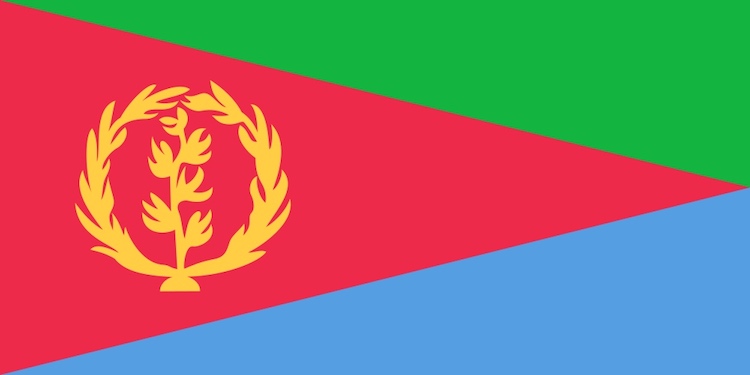By Klara Smits
BRUSSELS (IDN) – The political situation around Eritrea is evolving rapidly, in both the Horn of Africa and Europe. Sudan has closed the border with Eritrea and deployed troops amid rising tensions while in the Netherlands, Eritrea’s top diplomat has been declared ‘persona non grata’ over the country’s practice of enforcing a so-called “diaspora tax” on expatriate Eritreans. Growing protests from the Eritrean diaspora, and even one protest inside of Eritrea, show that the pressure on the Eritrean government is mounting.
When Sudan closed its borders with Eritrea at the beginning of January, it initially announced that the border closing was aimed at stopping trafficking of people and goods. However, deteriorating relations seemed to be playing an equal role.
The tensions have pitted Egypt and Eritrea on one side and Ethiopia and Sudan on the other, against each other. One of the key issues is the agreement between Sudan and Turkey over the island of Suakin in the Red Sea. Under the agreement signed late December 2017, Turkey will restore the island and its naval base, opening the possibility for military action to be launched from the island. Egypt considers the agreement a threat to its national security.
Another key issue is the Ethiopian dam project on the river Nile, which has long caused tensions between the two countries. Egypt fears that the upstream dam in Ethiopia may cause drought in downstream Egypt. The tensions around these key issues are exacerbated by, among other things, a border dispute between Egypt and Sudan and Sudan accusing Egypt of supporting Sudanese rebels.
Eritrea can be linked to these tensions in many ways. Unconfirmed reports have appeared in Egyptian media about Egyptian troops being stationed in the Eritrean military training camp of Sawa. Following this, the Eritrean president met with his Egyptian counterpart on the January 8, 2018. Sudan’s army leader and the Ethiopian Prime Minister met on the same day. Sudanese troops were likely to be deployed to the Eritrean border in direct response to the fear of Egyptian-Eritrean cooperation.
Meanwhile, there is still an ongoing border dispute between Ethiopia and Eritrea, with Ethiopia refusing to accept the standing border agreement between the two countries.
Sudan has since further increased the number of troops at the Eritrean border.
In addition to the political tension in the Horn of Africa, Eritrea received a strong diplomatic signal from the Netherlands on January 17. Following continued reports of intimidation and coercion linked to a two percent tax levied on the earnings of members of the diaspora, the head of the Eritrean embassy in The Hague, Tekeste Ghebremedhin Zemuy, was declared ’persona non grata’ and asked to leave the country with immediate effect.
The decision followed a heated debate in the Dutch parliament with the Minister of Foreign Affairs, Halbe Zijlstra, on a motion asking the government to close the Eritrean embassy altogether. Dutch politicians argued that the Eritrean authorities had been given many chances and warnings, but no improvement could be seen.
The debate focused on two crucial pieces of evidence: a report commissioned by the Dutch government describing the collection of the two percent tax in European countries, which showed the prevalence of coercion and other legal issues; and a broadcast by the Argos radio programme containing a recorded conversation between an Eritrean asylum seeker and the head of the embassy in The Hague.
In the conversation, the asylum seeker was told that if he wanted any consular services, he had to sign a ‘regret form’ in which he admitted guilt for his ‘mistakes’ – accepting any punishment for it – and pay the two percent tax over the five years he had worked in the Netherlands. Everyone who wanted something from Eritrea had to do this, said the head of the embassy office.
In response to the Argos programme, the Dutch government summoned the Eritrean ambassador from Brussels, but found that “there is no understanding from the Eritrean side about the great political and societal resistance in the Netherlands towards the way in which the diaspora tax is collected, and also that there is no willingness on the Eritrean side to conform to this.”
To make clear that “the Netherlands does not accept these undesirable practices,” the head of the embassy office was dismissed as a signal to Eritrea.
The Dutch Minister of Foreign Affairs added that if the involvement of the embassy in undesirable practices around the two percent tax is proved in court, the government could proceed to close the embassy office. [IDN-InDepthNews – 19 January 2018]
Photo: Flag of Eritrea. Credit: Wikimedia Commons.
IDN is flagship agency of the International Press Syndicate.
facebook.com/IDN.GoingDeeper – twitter.com/InDepthNews

